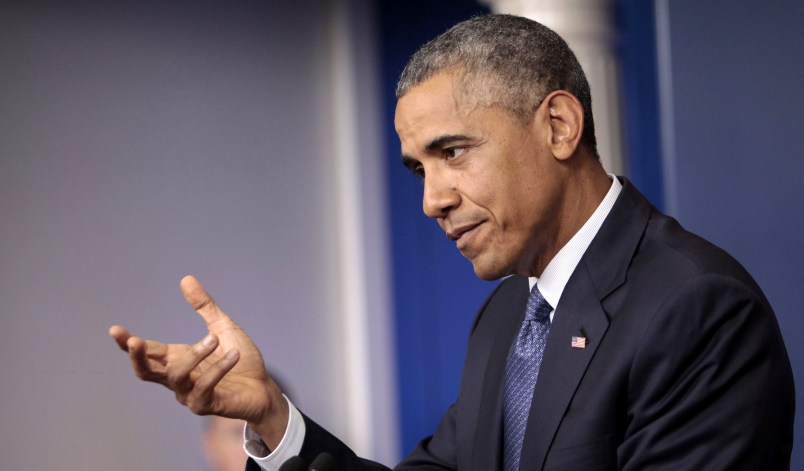It was one of Barack Obama’s signature promises during the 2008 campaign: he would fight the notorious influence of special interests by imposing strict rules against lobbyists in the federal government on his watch.
One day after becoming president, he signed his “revolving door ban” in an executive order prohibiting anyone in his administration from working on issues, or in agencies, they might have lobbied in the previous two years.
But on Tuesday the White House formally eased some of those rules, permitting registered lobbyists to sit on “federal advisory committees, boards, and commissions” as long as they’re representing organizations rather than acting for themselves.
“The revised policy now clarifies that the prohibition does not apply when a federally registered lobbyist is appointed to a federal advisory committee for the express purpose of providing the committee with the views of a nongovernmental entity, a recognizable group of persons or nongovernmental entities or state or local government,” Melanie Roussell Newman, a spokeswoman for the White House Office of Management and Budget, told TPM in a statement.
So, why is Obama backing away from one of his trademark issues just two-and-a-half years before his second term is over?
The answer is he was facing a lawsuit by six registered lobbyists who alleged the ban was an unconstitutional restriction on their right to petition the government. They said they shouldn’t be barred from serving on Industry Trade Advisory Committees, which advise the U.S. on trade policy.
Obama was losing the case in court. Earlier this year the D.C. Circuit Court of Appeals ordered that the lawsuit move forward after a federal district judge threw it out. The ruling rebuffed the administration’s push to dismiss the case and instead placed the onus on the federal government to justify its ban.
“Because the ban requires Appellants to limit their exercise of a constitutional right … we reverse the district court’s premature dismissal of the complaint and remand for that court to determine in the first instance whether the government’s interest in excluding federally registered lobbyists from ITACs outweighs any impingement on Appellants’ constitutional rights,” the D.C. Circuit ruling read.
Any curtailment of First Amendment rights is difficult to justify in court. The D.C. Circuit made this one a particularly heavy lift by sympathizing with the argument made by the lobbyists. “Unlike many advisory committees,” the court wrote, “ITACs exist for the very purpose of reflecting the viewpoints of private industry.”
The new rules were designed to put an end to the litigation.
Roussell of OMB said the prohibition was “not designed to prevent lobbyists or others from petitioning their government,” and will “continue to apply to lobbyists who are appointed to federal advisory committees to exercise their own individual best judgment on behalf of the Government.”
Critics have pointed out that the administration has made several exceptions to the rule and employed a number of people who used to be lobbyists. But politics aside, the episode underscores the legal difficulties of ratcheting back special-interest influence in Washington.







So if I understand this. They can serve on boards and comissions but nobody takes them seriously when they open their mouths.
Can the head of the board pump ‘Yakity Sax’ into the room whenever a lobbyist starts talking?
Major exception being Tom Wheeler as head of the FCC when he was a major lobbyist for the cable companies. And the FCC is the arbiter in the net neutrality issue, which the cable companies want changed to allow them to gouge anyone who wants a broad viewership on the Internet. Way to go Obama. What the hell were you thinking? Or did you just accept Rahm’s recommendation for the post?